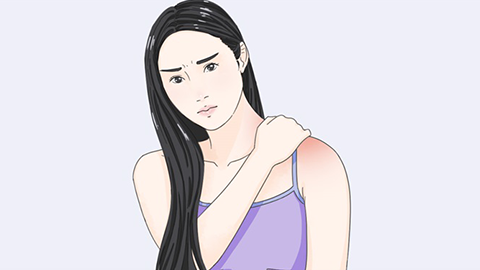How to treat gouty arthritis
Generally, gouty arthritis may be caused by factors such as purine metabolism disorders, reduced uric acid excretion, hyperuricemia, urate deposition following joint trauma, chronic glomerulonephritis, and others. It is recommended to seek timely medical attention, identify the exact cause, and then improve symptoms under a doctor's guidance through general treatments, medications, etc. Detailed analysis is as follows:

1. Purine Metabolism Disorders: Defects in enzymes involved in purine metabolism within the body lead to excessive uric acid production, exceeding excretion capacity. Crystals deposit in joints, causing inflammation, often with a familial hereditary tendency. Strictly control intake of high-purine foods such as animal offal, concentrated meat broth, beer, and consume more diuretic foods such as wax gourd and watermelon. Maintain daily water intake at 2000-3000 milliliters to promote uric acid excretion.
2. Reduced Uric Acid Excretion: Abnormal filtration and reabsorption functions of the kidneys lead to decreased uric acid excretion, elevated blood uric acid levels, and crystal deposition in joints. Avoid long-term use of medications affecting uric acid excretion, maintain regular作息, avoid staying up late, engage in appropriate exercises like jogging or cycling to enhance kidney excretion function.
3. Hyperuricemia: When blood uric acid levels remain above the normal range for a prolonged period, urate crystals deposit within joint cavities, triggering acute inflammation characterized by severe joint pain, redness, and swelling. Patients should follow medical advice to use medications such as allopurinol tablets, febuxostat tablets, and benzbromarone tablets to lower blood uric acid levels. During acute episodes, colchicine tablets can be used in combination for rapid symptom relief.
4. Urate Deposition Following Joint Trauma: After joint injuries such as impact or sprains, local tissue damage makes urate crystal deposition more likely, triggering inflammation, commonly affecting the knee and ankle joints. During acute episodes, immobilize and rest the joint, apply cold compresses to alleviate swelling and pain, and follow medical instructions to use analgesic medications such as diclofenac sodium enteric-coated tablets, loxoprofen sodium tablets, and celecoxib capsules. During recovery, avoid excessive joint loading.
5. Chronic Glomerulonephritis: Impaired glomerular filtration function hinders uric acid excretion, elevating blood uric acid levels and inducing gouty arthritis, accompanied by proteinuria and hematuria. Patients should follow medical advice to use medications such as valsartan capsules, bailng capsules, and febuxostat tablets to protect kidney function and lower uric acid levels. Hemodialysis may be required for severe cases to remove excess uric acid from the body and reduce joint damage.
In daily life, regularly monitor blood uric acid and kidney function, maintain a low-purine diet, avoid alcohol and high-sugar beverages. Pay attention to keeping joints warm, choose soft and comfortable shoes to reduce joint wear. Through regular作息 and scientific care, reduce the frequency of gouty arthritis attacks and maintain normal joint function.







